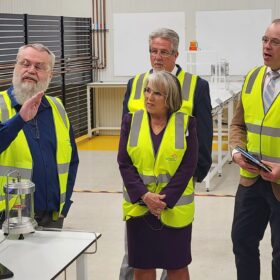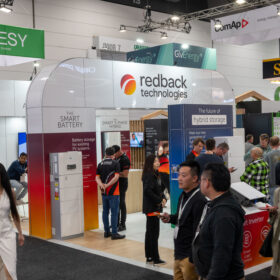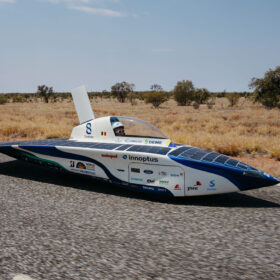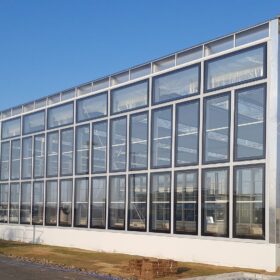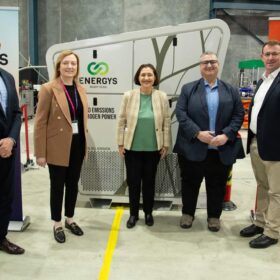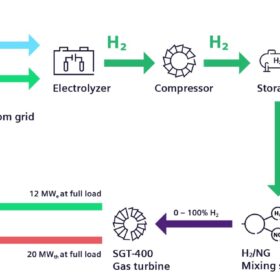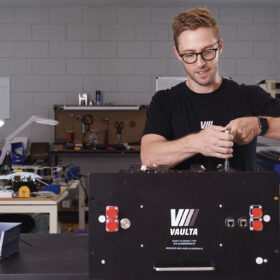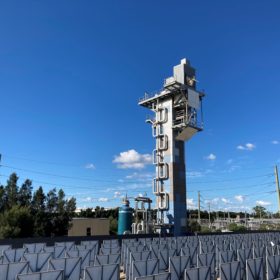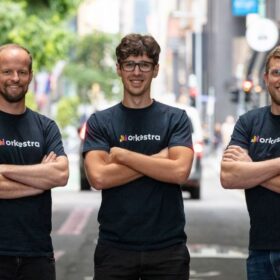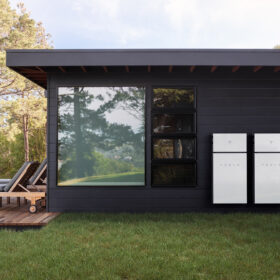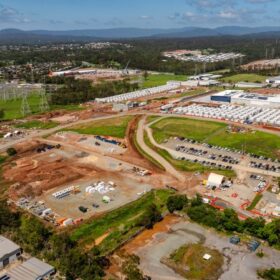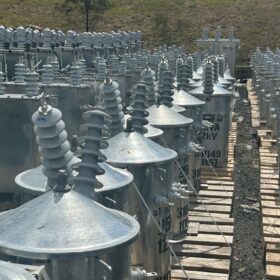NSW hydrogen company targets US with heat reaction technology
Australian hydrogen technology company Star Scientific has inked an agreement to establish a joint research and manufacturing facility in the United States as it seeks to expand the market for its heat reaction technology that utilises renewable hydrogen to rapidly create heat for industrial applications.
Redback offers early look at latest hybrid battery during All-Energy
Queensland battery company Redback Technologies offered a first look at its latest generation hybrid battery storage product at All-Energy this week, flagging it will offer special discounts to early customers when the product officially hits the market in Q2, 2024.
Belgians beat wind to claim World Solar Challenge
Belgian Solar Team Innoptus has claimed back-to-back Bridgestone World Solar Challenge titles, beating home dozens of competitors from around the world to win the 3,000 kilometre race through Australia’s outback.
ClearVue teams with Alpha Investment to commercialise solar glass tech
Solar glass manufacturer ClearVue Technologies is poised to accelerate its global expansion plans and further the commercialisation of its technology after locking in a $30 million (USD 19 million) funding facility with Australian fund manager Alpha Investment Partners.
Victorian-manufactured hydrogen gen-sets to provide backup power for five Telstra towers
Victorian hydrogen company Energys has unveiled its third-generation, locally-manufactured Hydrogen Fuel Cell Generators, five of which are to provide backup power for Telstra’s remote telecommunications towers as part of a Victorian pilot. The company says it is already constructing a green hydrogen generation plant too, supported by funding from the Victorian government.
Gas turbine driven by 100% renewable hydrogen for first time
The Siemens Energy-led Hyflexpower consortium has conducted a series of tests on a gas turbine located on the premises of Smurfit Kappa, a paper-based packaging supplier.
Weekend read: Australia-made batteries for easier repair, recycling
Brisbane-based Vaulta has developed a lighter, smaller battery casing with fewer parts, which makes it easier to assemble modules and repair faulty components. CEO Dominic Spooner argues that the company’s patented technology has the potential to significantly reduce battery waste.
Sparc pushes ahead with PWS plans for green hydrogen production
South Australia-based Sparc Hydrogen will use federal government funding to fast track the development of next generation photocatalytic technology to produce commercially viable green hydrogen from water using concentrated solar.
Orkestra Energy to finetune growth plans with $2 million seed round
An Australian software startup that aims to make it easier for energy providers and solar installers to assess the feasibility of commercial-scale renewable energy projects will now pursue global expansion plans after completing a seed funding round.
Ecoflow launches ‘retrofit’ residential battery with PV-coupling technology
The 5 kWh battery solution uses Ecoflow’s PV-coupling technology that reportedly ensures an easy connection to existing solar arrays. The new product features an output voltage range of 150-800 V.
